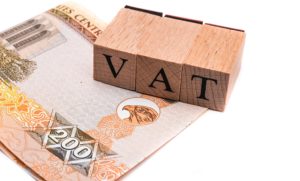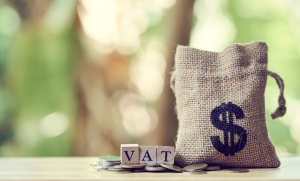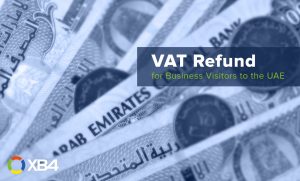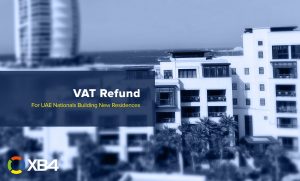
The reputation that UAE held in the past years for business simplicity was shifted in 2018 after the introduction of value-added tax (VAT). In January, the UAE and Saudi Arabia were among the first members of the six-nation Gulf Cooperation Council (GCC) to introduce VAT at a percentage of 5% on most supplied goods and services.
It was only after the realization of the importance of VAT and the additional source of revenue it could generate, UAE took the strong decision. Although the applicable standard rate of 5% is one of the lowest rates at the global level.
This article discusses the anatomy of a great VAT and how it came into existence
Two years of VAT in UAE
The advent of VAT in the UAE marked a paradigm shift in the business landscape. It was initially predicted that the process of VAT implementation in a region with little experience of indirect taxation would be challenging but instead it proved to be remarkably smooth. However, teething problems, as a result of a new system and lack of preparations, were experienced but soon companies embraced the change and efficiently adopted the new system.
Over the two years, around 312,000 businesses have registered for VAT in UAE according to Federal Tax Authority (FTA). The FTA is working on the development of advanced electronic systems for the monitoring, collection and payment of VAT in the year 2020.
The FTA has posted a number of guidelines on their website at the end of the year 2019 to provide guidance concerning the application of some of the existing rules. Turnover declaration letter form, being one of their recent developments, has also been published recently which is an attempt to make the registration process smoother and more structured.
What is VAT and Why is it necessary in the UAE?
VAT, regarded as a consumption tax, is applied to the end consumer who purchases the product or services. Companies selling goods and services, act as collectors of the tax on the government’s behalf and return it to the authorities on account of the sales made.
VAT was a suggestion that came from the International Monetary Fund to the GCC region. Given the overall reduction in oil prices over the past years, the government of UAE, who solely depended on oil and other hydrocarbons as a source of income, had to explore other revenue-raising measures.
The enforcement of taxes was seen as an additional and potential source of revenue and a key contributor to the public purse.
The citizens of UAE enjoy excellent public services in the form of healthcare, road infrastructure, parks and waste management. The cost of these services is borne by the government. In order to continue serving the citizens with exceptional services, the government decided to use the revenue from VAT to fund the improvement of quality of life for the coming generations. This is also in line with one of the objectives of UAE’s Vision 2021.
Apart from being a source of revenue, the implementation of VAT was seen as a step to regulate the market and bring all businesses under a unified system. Commercial transactions of organizations become more transparent as a result of government intervention through VAT.
Who is eligible to register for VAT in UAE?
The government has been making continuous progress in clarifying and helping organizations and individuals with the basic mechanics of VAT. So, the question arises: Who can register for VAT? Below list mentions the list of organizations or individuals who can voluntarily register for VAT:
- Natural persons and legal entities making VAT-taxable supplies
- Natural persons and companies importing VAT-taxable goods in Dubai
- Legal entities importing goods exceeding 187,500 AED per year
VAT registration is mandatory for the following:
- Companies selling or importing VAT-taxable goods and services exceeding 375,000 AED annually
- All foreign companies selling goods and services subject to VAT in the UAE
The collected tax from consumers can be paid to the government through filing of VAT returns.
Requirements for VAT registration in Dubai
Having a tax registration number (TRN) is the first and foremost step when registering for VAT in Dubai. This can be obtained together with the Certificate of Incorporation. Other important documents required for the registration are:
- Company’s business license
- Passport copies of the owner and shareholders
- Memorandum and Articles of Association of the company
- Updated contact information of the company’s representative
- Registered address of the company
- Income Statement of the last 12 months
- Estimation of revenue, expense and profit of the company for the following 30 days after VAT registration
- Company’s bank account details
- Details about import and export activities (if any)
Even having the complete set of documentation, the process of VAT registration in itself is lengthy and time-consuming.
Goods & Services with 0% VAT rate
Not all goods and services are subject to tax and you may benefit from a 0% VAT rate for the following services:
- Healthcare services
- Education services
- Sale and rent of residential properties
- Certain means of transport such as through air and sea
- Investment in precious metals
If you are eligible for VAT but the taxable turnover includes zero-rated supplies then you may seek exception for registration.
Conclusion
The process of VAT implementation has been a challenging ride for both the government and organizations. Companies have faced delayed publications of regulations and unclear messages from the authorities. While businesses themselves have made mistakes during the implementation phase. The process was tough but having said that, the dust has settled and VAT has become an integral part of the company’s business-as-usual.


























































